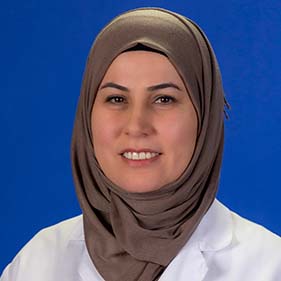SACRAMENTO, CA — Transgender female veterans appear to have a high prevalence of thyroid cancer, according to a recent study that might be the first to demonstrate such a disparity in that cohort.
The researchers presented their findings at the 2023 American Thyroid Association Annual Meeting in Washington, DC. Researchers affiliated with the Sacramento, CA, VAMC presented an abstract entitled, “Thyroid Cancer Is More Common Among Transgender Female Veterans.”1
Thyroid cancer occurs more frequently in individuals assigned female at birth (prevalence 0.45%) compared to those assigned male at birth (prevalence 0.13%), the authors reported. Because transgender women “experience higher‐than‐average rates of multiple medical conditions,” the researchers sought to determine the prevalence of thyroid cancer in transgender female veterans, according to the authors.
The study authors used the VA Informatics and Computing Infrastructure (VINCI), a nationwide VA database, to find veterans who had been seen in outpatient sites within a 5-year period from December 2017 through December 2022. Because individual chart data on the assigned sex at birth were sometimes inaccurate, the researchers used previously published census reports to determine the proportion who were assigned male at birth, study authors explained.
Of the approximately 9 million veterans in the database, the authors identified those who were 18 years of age or older in December 2017, had ever had an ICD-10 code of gender dysphoria or who were assigned male at birth and had ever had a prescription for estradiol. Of these 9,988 veterans, they identified a subcohort of veterans who had ever had an ICD-10 code of thyroid cancer, the researchers pointed out.
“Our study found that the prevalence of thyroid cancer is considerably higher among transgender female veterans than among cisgender male veterans and higher than the general population of all those assigned male at birth,” Hiba Basheer MD, site director of the Endocrine Fellowship Program at Sacramento VAMC, told U.S. Medicine. “Although the reasons for this remain unclear, increased rates of social determinants of health associated with malignancy such as smoking and obesity likely play a role. Given mounting evidence that exogenous estrogen is associated with increased risks of thyroid cancer, the role of estrogen gender-affirming hormonal therapy in explaining this disparity should be addressed in further studies.”
The analysis found the average age at thyroid cancer diagnosis among the veterans was 53.8 years. The median body mass index (available for 26 patients) was 32, which is indicative of obesity, according to the authors.
Thyroid Cancer Prevalence
The study’s most important finding is that “thyroid cancer prevalence among transgender female veterans was 34.0 per capita (95% CI: 22.3-45.9 per capita), which is higher than thyroid cancer prevalence among cisgender male veterans, which was found to be 18.7 per capita, within a margin of error of 10% (95% CI: 15.6-21.9 per capita),” Basheer wrote in an email. “Previously published estimates broken down by sex assigned at birth reflected a prevalence of thyroid cancer in those assigned male at birth of 13.3 per capita (95% CI: 13.3-13.4 per capita) and in those assigned female at birth of 44.1 (95% CI: 44.0-44.2 per capita),” added Basheer, who is also health sciences assistant clinical professor of endocrinology, diabetes and metabolism at the University of California, Davis.
The authors wanted to explore this topic because “transgender people are disproportionately affected by many medical conditions, are at higher risk of delayed diagnosis of cancer and are at increased risk of advanced-stage disease at diagnosis than cisgender peers, primarily due to limited access to care driven by discrimination and marginalization,” she explained.
“This study resulted from clinical observation in endocrine clinic, where we noticed a higher number of thyroid cancers among transgender female veterans, so we intended to eliminate a disparity in thyroid cancer diagnosis and treatment in this marginalized and historically under-connected population,” Basheer said. “More research is required to be able to ensure that estrogen gender-affirming hormonal treatment commences with a proper assessment of risks of malignant transformation.”
The study’s results are significant because about one-third of the transgender female veterans included in this study “had been receiving estrogen for an average of over three years before diagnosis of thyroid cancer, which could suggest estrogen gender‐affirming hormone therapy may be a potentially important risk factor,” she suggested.
“The results of this study represent an important disparity to eliminate for transgender females, particularly as it may bear on the discussion of risks associated with gender-affirming hormonal therapy and could prompt screening for those known to be at risk for development of thyroid cancer from other causes,” according to Basheer.
It remains unclear if there’s “long-term cancer risk from sex hormone related therapy and whether cancer risk changed in transgender people receiving hormonal therapy,” the authors explained.
“Data are emerging that demonstrate an increased risk of malignancies including thyroid cancer among cisgender women treated with exogenous estrogen,” Basheer said. “Although causation is yet to be determined, a clear correlation is observed in this population. Given this, healthcare professionals treating transgender females with hormone affirming therapy should be aware of a potential association with thyroid cancer.”
- Late Breaking Abstracts. Thyroid®. Sep 2023. A-125-A-171. http://doi.org/10.1089/thy.2023.29161.lb.abstracts. Published in Volume: 33 Issue S1: September 15, 2023.


